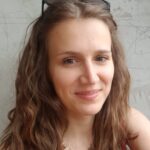A Transient Age Manifesto
Martin Vopěnka
Translated from the Czech by Kristýna Adámková
Better late than never,
I came into this world.
President Kennedy was still alive
and the Beatles were already trumpeting
their ode to joy—the motto of the day.
It was heard behind the barbed wire,
where it had just started to dawn
and the night sky
was flickering with the triumph of the first satellites.
Meanwhile, the world
took its first step toward another disaster,
at exactly this time,
and nobody even noticed.
It was prosperitizing,
people were dancing on the decks,
quite understandably
and they dance there to this day.
Fifty-two years later,
I am considering premature departure—
because, now, I know
it will always be premature—
there is no coming to terms with it,
except maybe fall into dotage
to that first state of innocence.
But, for now,
I am guilty
of the burning sting of complete consciousness.
The scene flashes by
like the view from the window of a rushing train
winters, summers, governments change—
ever faster and ever drearier;
addictive cycles of time.
And yet the planet
is still alive;
the miracle of life;
the chasm between to live and not to live
is endless.
The planet: a garden of souls
of humans and beasts;
even of beastly suffering
souls.
Also, there is more love
than ever before—
now—at the end of time.
The planet is all heated up
by the outpouring of love.
A century of children:
our sweet darlings,
they are cheerful and adored,
except for a few lost limbs,
forced labor, and abuse.
But that’s a different world:
we live here
in civilization
and we love them, truly.
We asphalt the road
into malls for them.
Cathedrals of vanity,
useless time; an obstacle.
An overly sensitive civilization,
so full of feelings
devours itself
in alienation.
Like herds of tourists,
clutching their cell phones,
we devour the legacy of ancient times.
We uproot our rootedness
and root ourselves in rootlessness.
Massiveness:
we ourselves are the plague.
The ravaged Earth:
sliced apart, haphazardly patched,
plasticated, and defecated upon.
Meanwhile, our knowledge
is limitless.
Borderless possibilities
are opening before us;
one of the reasons
people are still dancing.
Deathlessness within our reach:
the unlived chosenness of the chosen ones.
And interventions into creation—
the code in our cells.
All of this—
during one short life—
has not reached its end.
I came into this world
late, but early.
I won’t live to see its resolution or destruction.
I was destined for
this transient age
of frantic dancing.
A filthy comfortable age
full of hot tubs and flushing crappers.
We unsettled the planet,
we covered it with excrement and children
and now we don’t know what to do.
I don’t know, either.
I think, somehow, I am
fated to live
at the turn of ages.
It is not possible to remain
and there is no way back.
This is a phase of transition:
Abrupt beginnings with no end.
Things around us rapidly change,
we change a bit less ourselves—
and, yet, we were born,
each of us, in whatever years we were born in.
I myself in the sixties.
And that cannot be changed:
Somehow, I remain in myself,
born then,
a witness to myself
of remaining ideas and feelings.
I love life desperately,
and my dearest ones,
and sunsets over the countryside;
sometimes, over the sea –
also, I am a tourist, one of the crowd,
in some ways, I am the same
as those who went before me,
the same as everyone.
Born of a mother
into the ice-cold light
of fluorescent lamps.
She was helpless and I was blind,
we were left at the mercies
of socialism, doctors, and forceps.
I came into this world
in Podolí, Prague,
on 9/8/1963.
Better late than never.
And, yet, way too early.
Manifest přechodného věku
Pozdě ale přece
přišel jsem na svět.
Prezident Kennedy ještě žil
a Beatles už vytrubovali
svou ódu na radost – heslo doby.
Zněla i za ostnatým drátem,
kde právě svítalo
a z noční oblohy
blikal triumf prvních družic.
A zatím svět
vykročil k jiné zkáze
právě tehdy,
aniž si kdo všiml.
Blahobytněl,
na palubě se tančilo,
celkem pochopitelně,
a tančí se tam dodnes.
Po dvaapadesáti letech
pomýšlím na předčasný odchod.
Protože teď už vím,
že předčasný bude vždycky.
Nelze se s ním smířit,
leda zhloupnout
do prvotní nevinnosti.
Zatím však
jsem vinen
pálivým vědomím všeho.
Scéna se míhá
jak za okny vlaku,
střídají se zimy, léta, vlády –
čím dál rychleji, čím dál fádněji;
návykové cykly času.
A přitom planeta
je pořád ještě živá;
zázrak života;
propast mezi žít a nežít
je nekonečná.
Planeta: zahrada duší
zvířecích i lidských.
I zvířecky trpících
duší.
A také lásky je víc
než kdy předtím –
teď – na sklonku věků.
Planeta přehřátá,
přetékající láskou.
Století dětí:
našich miláčků,
zbožňovaných a šťastných,
až na nějaké ty usekané ruce,
otrocké práce a zneužití.
Ale to je jiný svět:
my žijeme tady,
v civilizaci
a milujeme je doopravdy.
Asfaltujeme jim cestu
do obchodních center.
Katedrály zmaru,
čas k nepotřebě; na překážku.
Přejemnělá civilizace
plná citu
stravující sama sebe
odcizením.
Jak stáda turistů
s mobily v rukách
spásáme odkaz starých časů.
Vykořeňujeme zakořeňěnost
a zakořeňujeme bezkořeněnost.
Masovost:
mor, jímž jsme sami.
Sežraná Země:
rozkrájená a fušersky slátaná,
zaplastovaná a pokálená.
A přitom naše poznání
nezná hranic.
Bezhraničnost možností,
jež se nám otvírají;
jeden z důvodů,
proč se stále ještě tančí.
Bezesmrtnost na dosah:
neodžitá vyvolenost vyvolených.
A zásahy do stvoření –
šém v našich buňkách.
To všechno
za jeden krátký život,
ještě není na úplném konci.
Přišel jsem na svět
pozdě ale brzy.
Nedožiju se řešení ani zkázy.
Je mi souzená
přechodná doba
překotného tance.
Prasácky pohodlná,
plná vířivek a splachovacích hajzlů.
Zvířili jsme planetu,
pokryli ji výkaly a dětmi
a teď nevíme, co si počít.
Ani já to nevím.
Myslím, že žiju
tak nějak osudově
na přelomu věků.
Už nelze trvat
a není cesty zpátky.
Jsme v přechodové fázi:
překotné začínání bez konce.
Vše kolem nás se zběsile mění,
my sami trochu méně –
přece jen narození
v těch kterých letech.
Já v šedesátých.
A to se nedá změnit:
nějak v sobě trvám,
narozený tehdy,
sám sobě svědkem
přetrvávajících myšlenek a citů.
Zoufale milující život
a své blízké
a západ slunce nad krajinou;
někdy i nad mořem –
také turista, jeden z davu,
v něčem stejný
jako ti přede mnou,
jako všichni.
Zrozený z matky
ve světle zářivek
ledově chladných.
Ona bezradná a já slepý,
vydaní napospas
socialismu, doktorům a kleštím.
Přišel jsem na svět
v Praze Podolí
8.9.1963.
Pozdě ale přece,
a přece příliš brzy.
Note: This manifesto is the concluding piece from Vopěnka’s first poetry collection Dům, který opouštíš (The House You Are Leaving, 2016).
 Martin Vopěnka (b. 1963) has authored many books across several genres. He writes primarily fiction for both children and adults, in precious moments of inspiration, he writes poetry as well. He is currently working on his second collection (the first one Dům, který opouštíš came out in 2016). Several of Vopěnka’s novels were translated into many languages. Most recently The Back To Beyond or My Brother The Messiah. Martin Vopěnka serves as the president of the Czech Association of Booksellers and Publishers as well as the founder and director of the publishing house Práh. He has raised four children and lives in Prague, the Czech Republic.
Martin Vopěnka (b. 1963) has authored many books across several genres. He writes primarily fiction for both children and adults, in precious moments of inspiration, he writes poetry as well. He is currently working on his second collection (the first one Dům, který opouštíš came out in 2016). Several of Vopěnka’s novels were translated into many languages. Most recently The Back To Beyond or My Brother The Messiah. Martin Vopěnka serves as the president of the Czech Association of Booksellers and Publishers as well as the founder and director of the publishing house Práh. He has raised four children and lives in Prague, the Czech Republic.
 Kristýna Adámková is a graduate of Palacky University, Olomouc. She holds an MA in translation and interpreting and works in that field as a freelancer from her home in Kroměříž, the Czech Republic. Martin Vopěnka’s poetry collection Dům, který opouštíš is her first literary translation project.
Kristýna Adámková is a graduate of Palacky University, Olomouc. She holds an MA in translation and interpreting and works in that field as a freelancer from her home in Kroměříž, the Czech Republic. Martin Vopěnka’s poetry collection Dům, který opouštíš is her first literary translation project.
